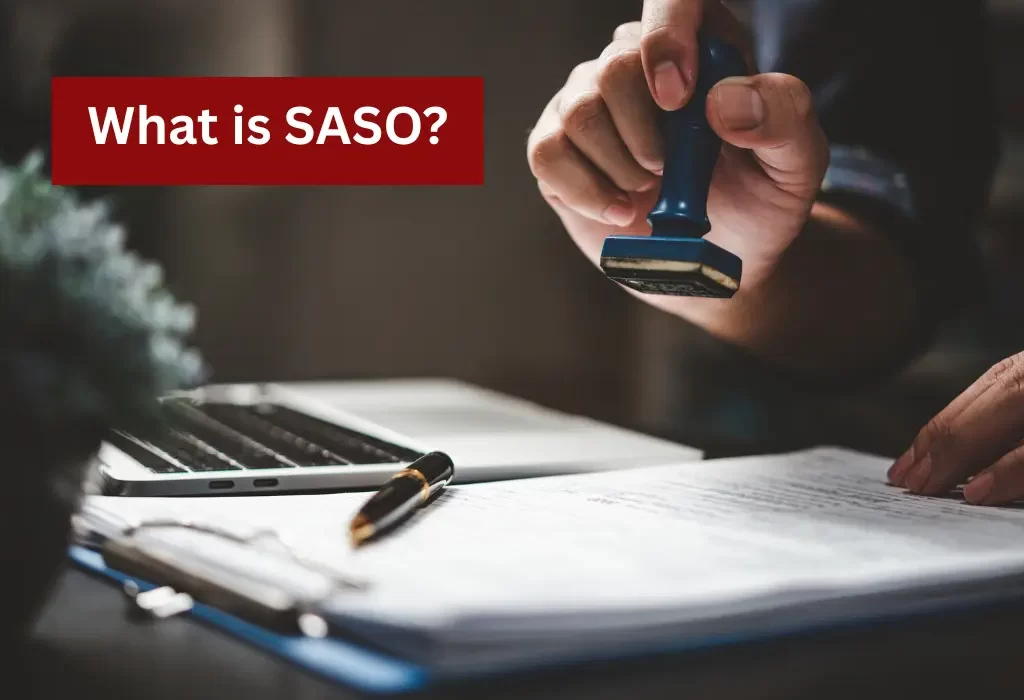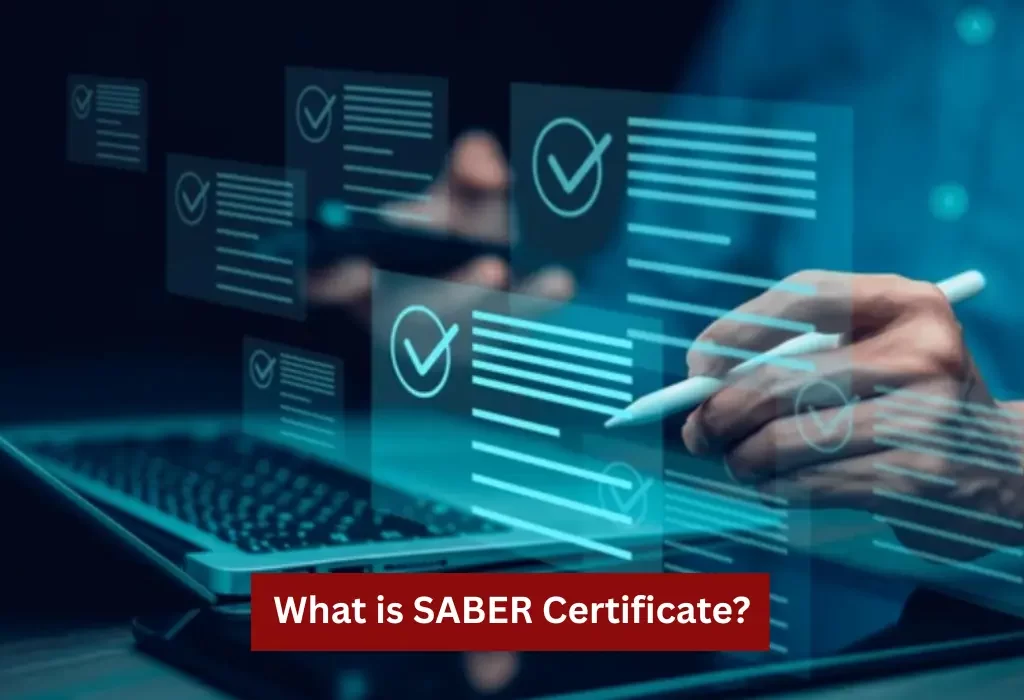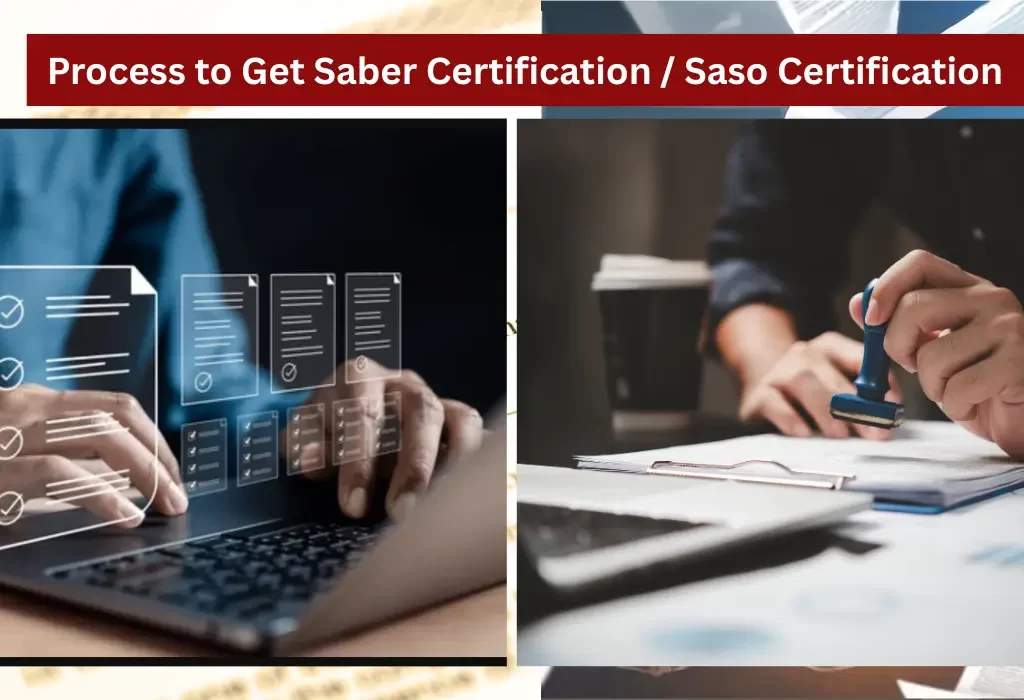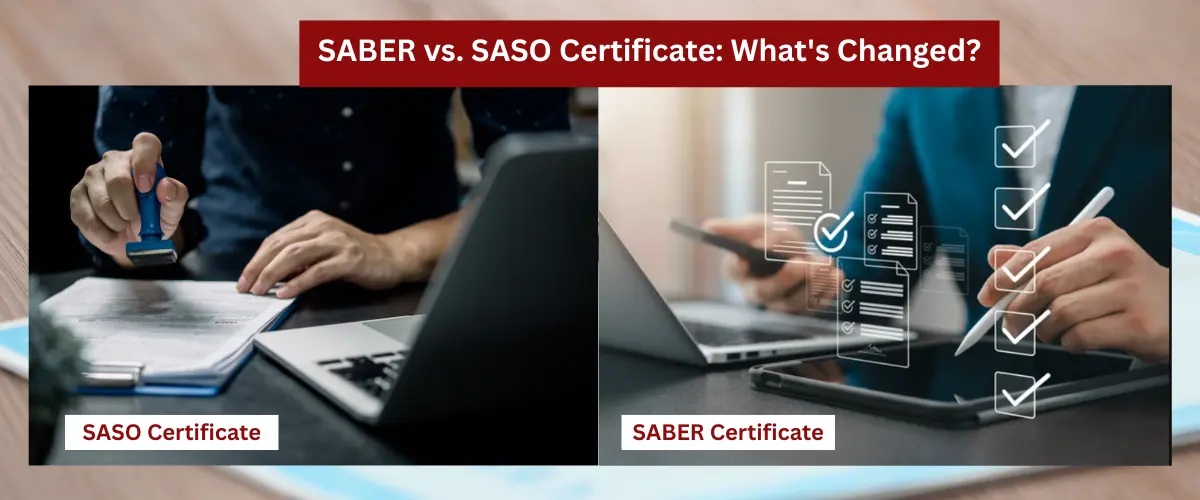“Exporting to Saudi Arabia? Getting the right certification—SABER or SASO—is crucial. Pick the wrong one, and your shipment could be rejected at the border, costing you time and money!”
Saudi Arabia’s product compliance regulations have evolved, and two key systems dominate the market: SABER (Saudi Product Safety Program) and SASO (Saudi Standards, Metrology, and Quality Organization). While SABER is now the primary digital platform for most goods, some businesses still confuse it with the older SASO certification—leading to costly delays.
Understanding the difference between SABER and SASO ensures smooth customs clearance and avoids compliance pitfalls. In this guide, we’ll break down:
- Which system applies to your products,
- Key differences in cost, process, and requirements,
- How to avoid common certification mistakes.
Let’s simplify SABER vs. SASO so you can export to Saudi Arabia with confidence.
What is SASO?

SASO (Saudi Standards, Metrology, and Quality Organization) is the official standards body of Saudi Arabia responsible for ensuring product quality, safety, and compliance with national regulations. Established to regulate imports and locally sold goods, SASO sets technical standards across various industries—from electronics and toys to construction materials and automotive parts.
SASO’s Role in Product Conformity
Before the introduction of SABER, SASO was the primary authority overseeing product certifications. Its key functions included:
- Setting Safety & Quality Standards: Defining technical requirements for products sold in Saudi Arabia.
- Conformity Assessment: Requiring lab testing and inspections to verify compliance.
- Issuing Certificates: Granting SASO CoC (Certificate of Conformity) for approved shipments.
Is SASO Still Used?
While SASO remains the governing body for standards, its manual certification process has mostly been replaced by SABER, Saudi Arabia’s newer digital platform. Some older products or niche categories may still require SASO approval, but for most exporters, SABER is now mandatory.
What is SABER Certificate?

SABER (Saudi Product Safety Program) is Saudi Arabia’s modern, digital certification platform that has revolutionized the country’s import compliance process. Launched as part of Vision 2030 reforms, this mandatory online system streamlines product registration and conformity assessment for goods entering the Saudi market.
Key Features of SABER:
- Digital-First Approach: Entire process conducted online through the SABER portal
- Mandatory for Most Goods: Replaces older SASO certification for the majority of products
- Two-Stage Certification: Requires both a Product Certificate of Conformity (PCoC) and a Shipment Certificate of Conformity (SCoC)
- Faster Processing: Reduces approval times compared to traditional SASO certification
How SABER Works:
- Manufacturers/importers register products in the system
- Submit required test reports and technical documents
- Obtain PCoC for product type
- Request SCoC for each shipment
Unlike the older SASO system, SABER provides:
✓ Real-time application tracking
✓ Automated document processing
✓ Clearer compliance requirements
Key Differences Between SABER and SASO
When exporting to Saudi Arabia, understanding the distinction between SABER and SASO certifications is critical for compliance. Here’s a detailed comparison:
1. System Type & Modernization
- SABER: Fully digital platform launched in 2019
- SASO: Traditional paper-based system (being phased out)
2. Mandatory Status
| System | Status |
| SABER | Mandatory for most products (over 85% of goods) |
| SASO | Only for specific exempted products |
3. Certification Process
SABER Process:
- Online registration
- Two-stage certification (PCoC + SCoC)
- Average processing: 3-5 working days
SASO Process:
- Physical document submission
- Single certificate issuance
- Average processing: 7-14 working days
4. Cost Comparison
- SABER: Generally more cost-effective due to digital processing
- SASO: Typically 20-30% higher fees due to manual handling
5. Validity Period
- SABER PCoC: Usually 1 year (product-specific)
- SASO CoC: Typically single shipment only
6. Product Coverage
- SABER covers all regulated products under the new system
- SASO now limited to:
• Some construction materials
• Certain industrial equipment
• Products in transitional phase
Which Should You Choose?
As of 2024, >90% of exporters need SABER certification. SASO remains relevant only for:
- Products explicitly exempted from SABER
- Shipments to special economic zones
- Some military/defense related items
Which Certification Do You Need?
Determining whether your products require SABER or SASO certification depends on three key factors:
1. Product Type
- SABER Required For:
✓ Consumer electronics
✓ Appliances
✓ Toys
✓ Food contact materials
✓ Automotive parts
✓ Most retail goods - SASO May Still Apply For:
✓ Certain construction materials
✓ Industrial machinery
✓ Products with special exemptions
2. Implementation Timeline
Saudi Arabia has been phasing in SABER certification by product category since 2019. As of 2024:
- All newly regulated products must use SABER
- Legacy products in transition may still use SASO temporarily
3. Customs Clearance Requirements
- Jeddah/Dammam Ports: Strictly enforcing SABER
- Special Economic Zones: Some still accept SASO
Process to Get SABER Certification / SASO Certification

How to Get SABER Certification
- Create an Account
- Register as a manufacturer/importer on the SABER platform
- Verify your business information through the Saudi government portal
- Product Registration
- Submit technical documents (test reports, product specifications)
- Pay the applicable registration fees (varies by product category)
- Obtain PCoC (Product Certificate of Conformity)
- Approved Notified Body reviews your submission
- Typical processing: 3-5 business days
- Valid for 1 year (for most products)
- Request SCoC (Shipment Certificate)
- Submit shipment details for each import
- Pay per-shipment certification fee
- Receive SCoC within 24-48 hours
- Customs Clearance
- Present SCoC to Saudi customs
- Required for all regulated products
SASO Certification Process (If Applicable)
- Select Approved Certification Body
- Choose from SASO-accredited agencies (e.g., Intertek, SGS)
- Laboratory Testing
- Products tested at SASO-approved labs
- Typical turnaround: 2-3 weeks
- Document Submission
- Complete application with:
✓ Test reports
✓ Commercial invoice
✓ Product photos
- Complete application with:
- Receive SASO CoC
- Valid for single shipment only
- Must repeat process for future shipments
Key Differences:
- SABER is fully digital; SASO requires physical documents
- SABER has longer validity (PCoC)
- SASO requires product testing for every shipment
Common SABER & SASO Certification Mistakes to Avoid
Don’t let these costly errors delay your Saudi shipments:
1. Assuming SASO is Still Acceptable
- Reality: Over 90% of products now require SABER certification
- Risk: Shipments without SABER will be rejected at Saudi ports
2. Using Outdated Testing Reports
- SABER requires recent test certificates (typically <2 years old)
- SASO demanded new testing for every shipment
3. Skipping Product Registration
- Many exporters forget to:
✓ Register products before shipment
✓ Obtain both PCoC (product) AND SCoC (shipment) certificates
4. Last-Minute Applications
- While SABER is faster, allow:
✓ 5-7 days for first-time certification
✓ 48 hours for shipment approvals
5. Ignoring Labeling Requirements
- All products must display:
✓ Arabic labeling
✓ SASO-approved safety marks
Conclusion
Navigating Saudi Arabia’s product certification requirements doesn’t need to be complicated. While SABER has become the mandatory system for most imports, a few niche products may still require SASO compliance. Understanding these differences ensures your shipments clear customs smoothly and avoid costly delays.
Let Radhi Custom Clearance Co. Handle Your Certification!
As leading Saudi customs experts, we simplify the entire process:
✓ Fast-track SABER/SASO certification
✓ End-to-end documentation support
✓ Guaranteed customs clearance
Get Your Free Consultation Now to ensure your shipments meet all Saudi regulations.


Add a Comment